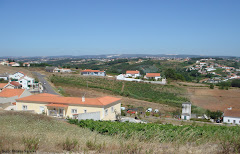 Quando:
Quando:April 8-11, 2015
Onde:
Miami, Florida
Cities have become the central nodes in global networks of exchange—of information, capital, goods, and relationships. While cities in this context are places of promise, innovation, and mobility, they are also the sites of significant challenges. The persistence of poverty and inequality, crime and violence, social exclusion and discrimination, and environmental degradation in cities, reveals the parallel reality of urban distress confronting policymakers, planners, and social actors at all levels. This year’s conference theme focuses on place-making in the “global city,” with particular attention given to the actors, processes, strategies, and contingencies that shape urban settings and urban life. Thus, the conference theme will explore actions and processes from above (e.g. transnational capital and political institutions), as well as below (e.g. the work of civil society organizations, and the everyday actions of ordinary people).
Miami provides an apt setting for this exploration. Long established as a link between the United States and Latin America and a stronghold of Cuban American culture and political power, Miami remains a regional destination for immigration. The city has become a destination hub for residents from South America and the Caribbean. In addition, Miami remains home to substantial Anglo and African American populations. It has also moved from its prominent role as a trading hub for transactions with Latin America to a substantial site of international banking, finance, information technology, and other high-end service industries. Moreover, as a coastal city in an era of climate change and increasingly high-profile natural disasters, Miami represents a city poised for change through global environmental processes. Against this backdrop, the conference will examine how cities are adapting to meet global economic and environmental imperatives, who is engaged in leading these changes, and what opportunities and challenges these leaders face in mediating local outcomes.
Topical Categories
Arts, Culture in Urban Contexts
Disaster Planning/Disaster Management for Urban Areas, Cities and National Security
Economic Development, Redevelopment, Tourism, Urban Economics, Urban Finance
Education, Schools, Higher Education Institutions
Environmental Issues, Sustainability, Urban Health, Technology and Society
Globalization, Multi-national Urban Issues
Governance, Intergovernmental Relations, Regionalism, Urban Management
Historic Preservation, Space and Place
Historical Perspectives on Cities, Urban Areas
Housing, Neighborhoods, Community Development
Human Services and Urban Populations, Nonprofit/Voluntary Sector in Urban Contexts
Immigration, Population and Demographic Trends
Infrastructure, Capital Projects, Networks, Transport, Urban Services
Labor, Employment, Wages, Training
Land Use, Growth Management, Urban Development, Urban Planning
Poverty, Welfare, Income Inequality
Professional Development, The Field of Urban Affairs
Public Safety in Urban Areas, Criminal Justice, Household Violence
Race, Ethnicity, Gender, Diversity
Social Capital, Democracy and Civil Society, Social Theory, Religion and the City
Urban Communication (Urban Media Roles, Urban Journalism, Social Media/Technology in Urban Life)
Urban Design, Urban Architecture
Urban Indicators, Data/Methods, Satisfaction/Quality of Life Surveys
Urban Politics, Elections, Citizen Participation
Urban Theory, Theoretical and Conceptual Issues in Urban Affairs
Ver mais:
http://urbanaffairsassociation.org/conference/conference2015/













Sem comentários:
Enviar um comentário